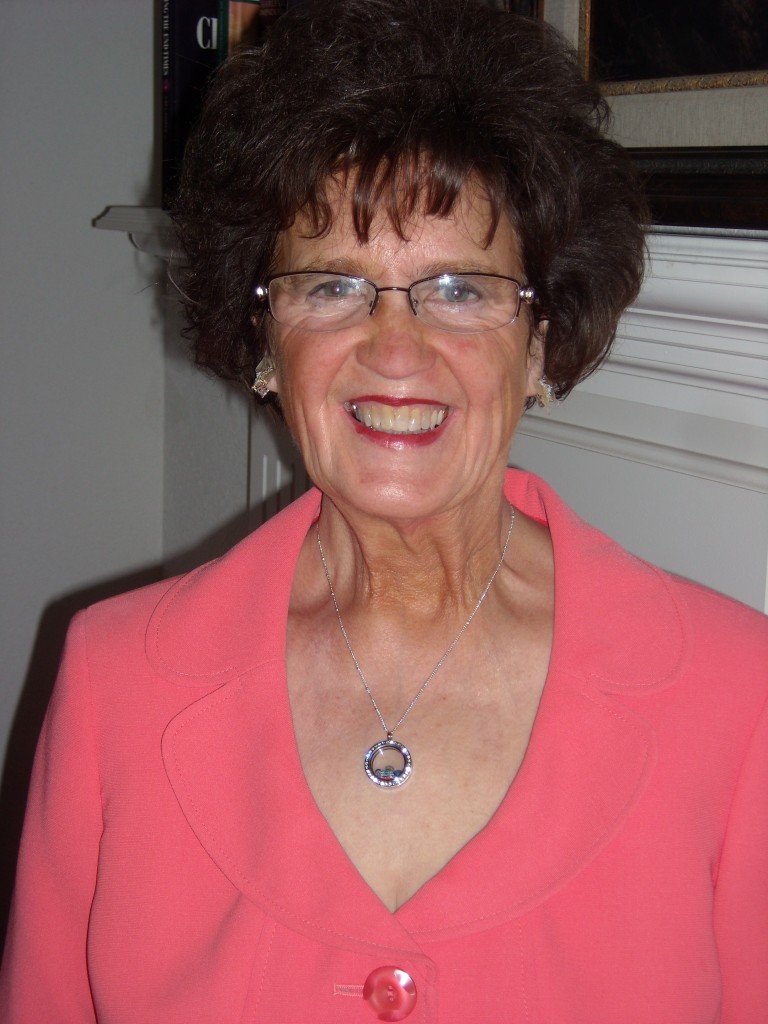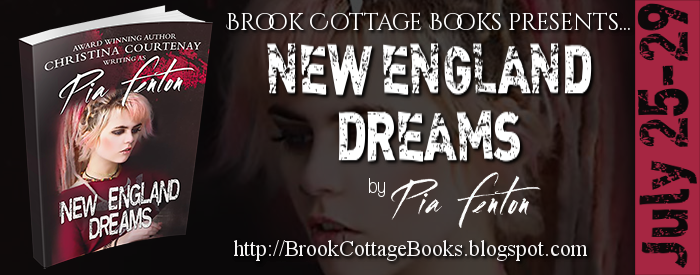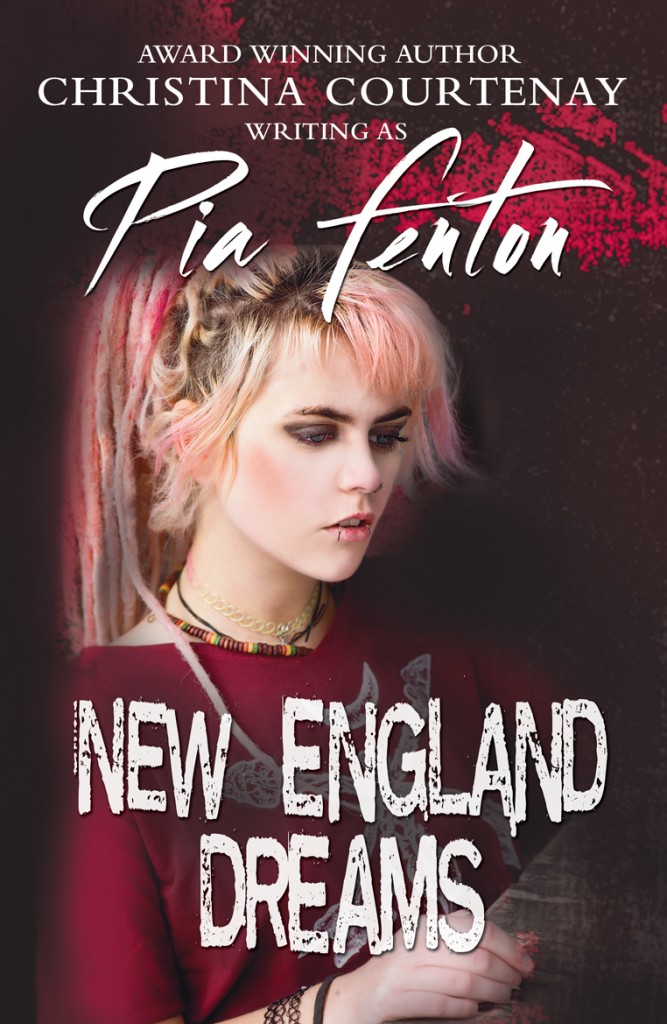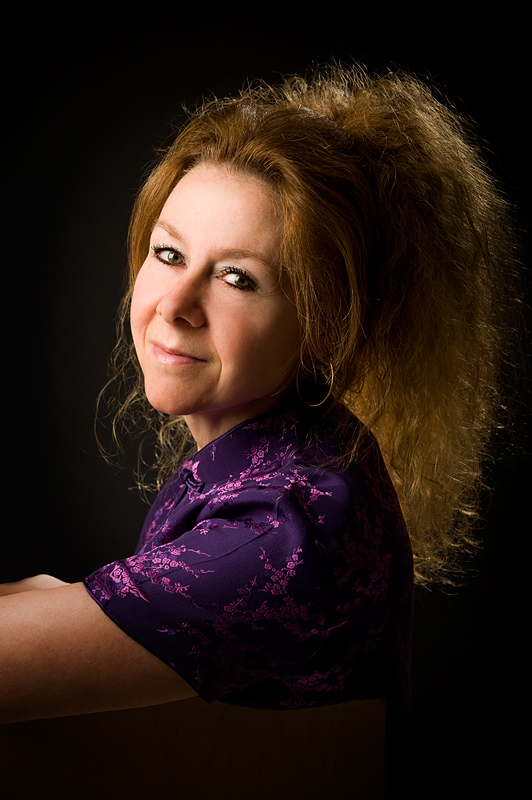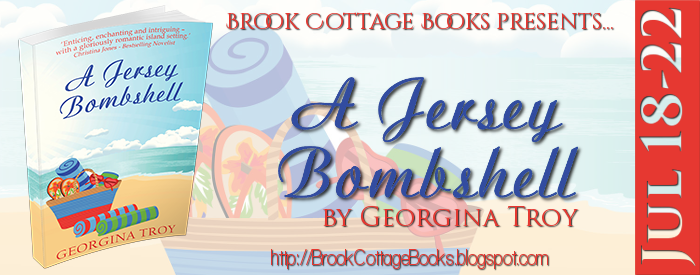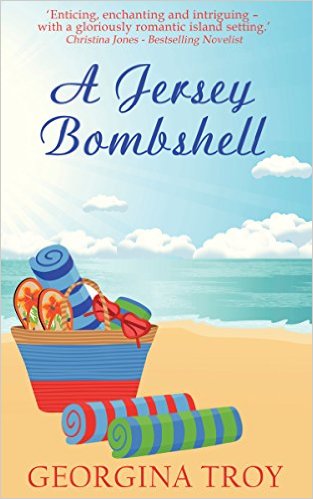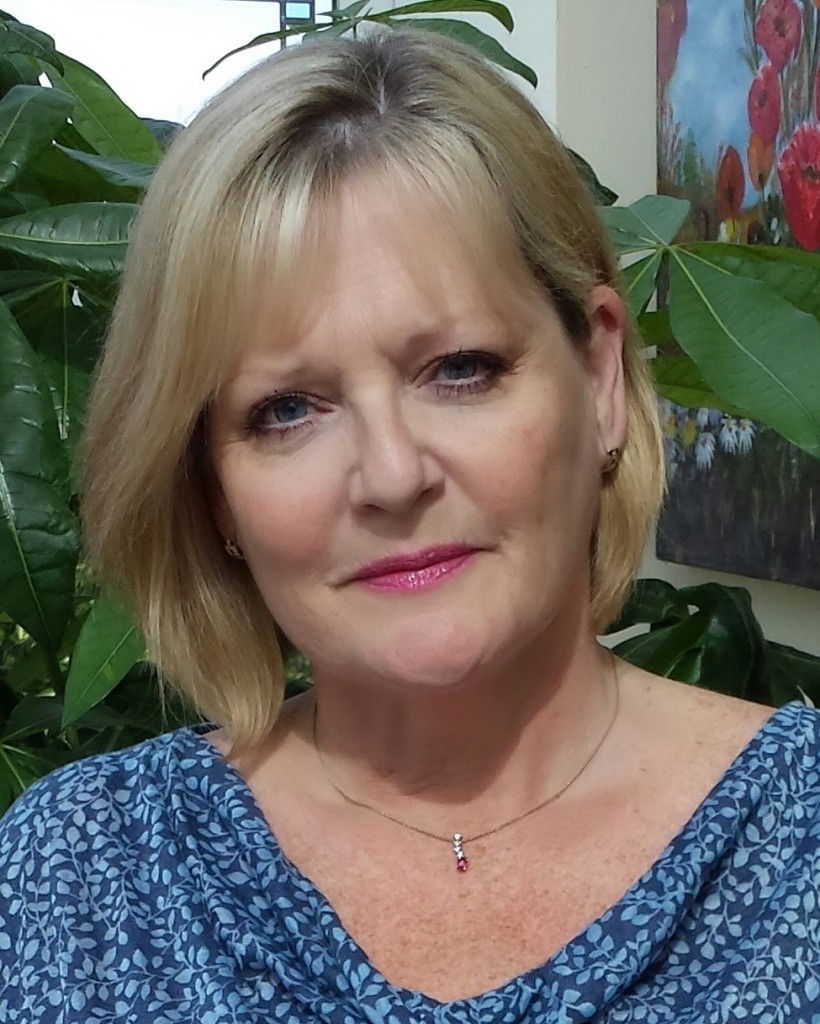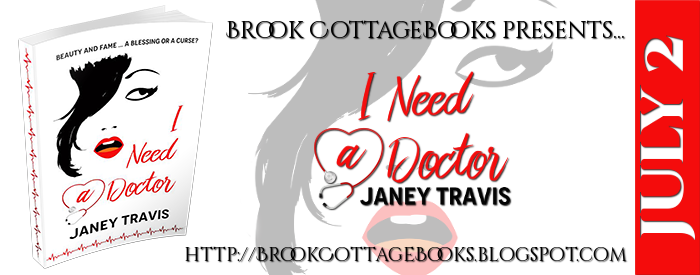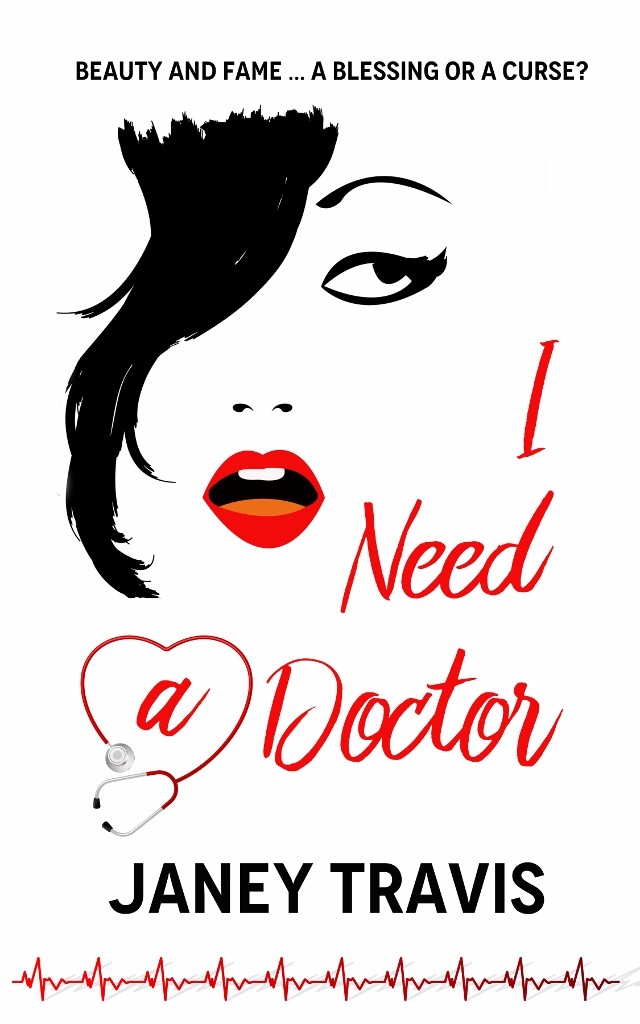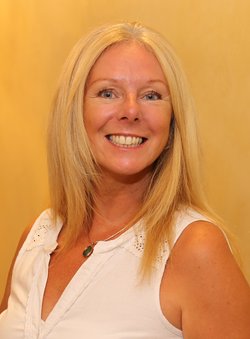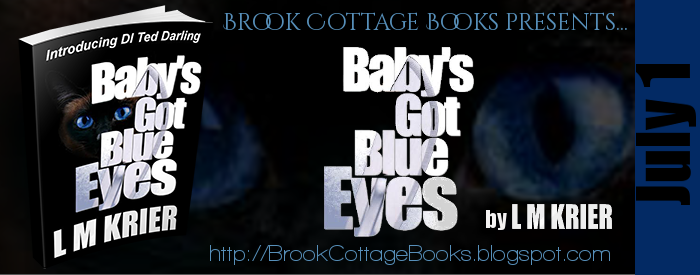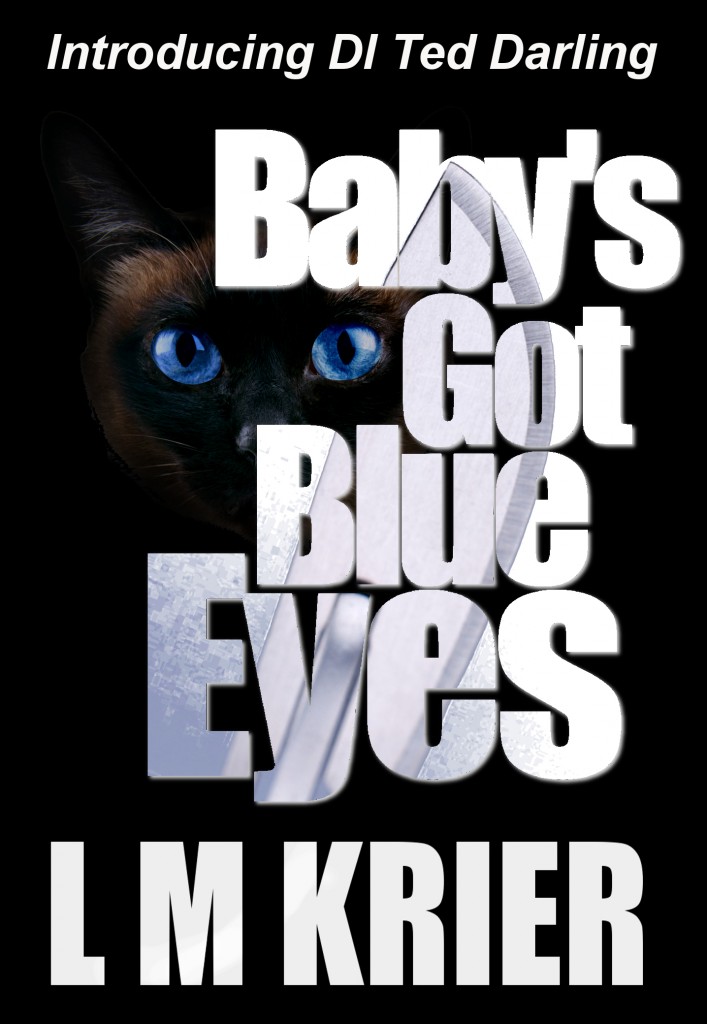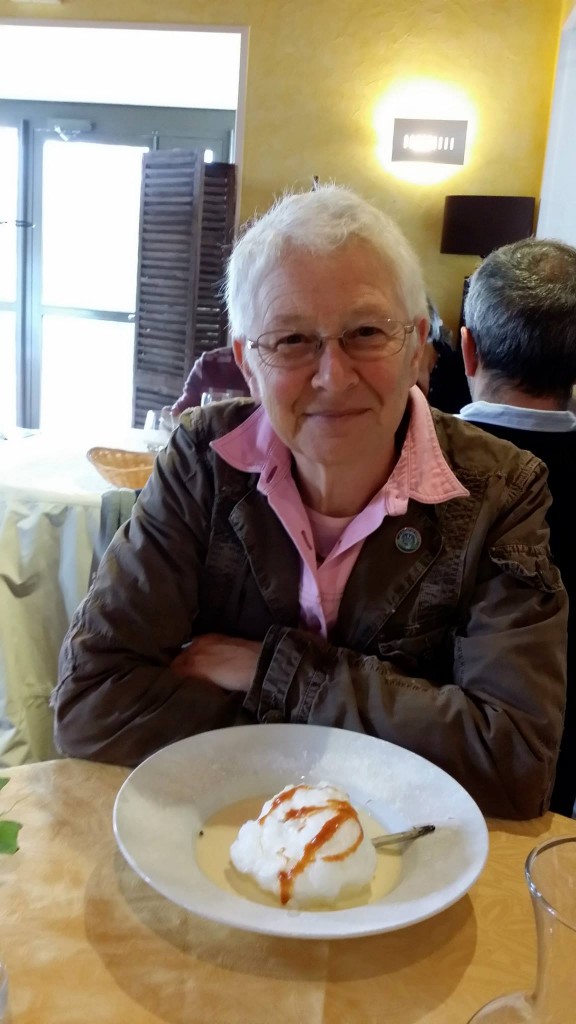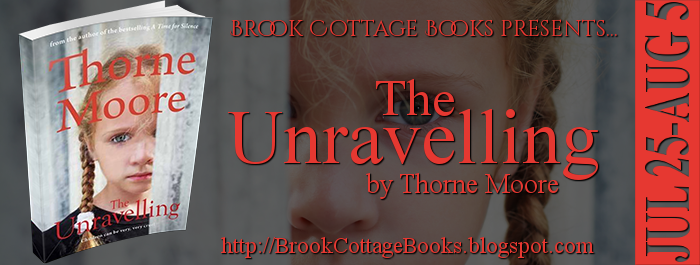
The Unravelling
by
Thorne Moore
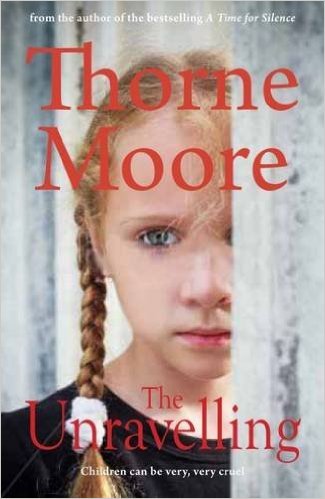
Genre: Domestic noir
Release Date: 21 July 2016
Publisher: Honno Press
From the Top Ten Bestselling Author of A Time for Silence
The Unravelling
When they were ten everybody wanted to be Serena’s friend, to find themselves one of the inner circle. But doing so meant proving your worth, and doing that often had consequences it’s not nice to think about – not even thirty-five years later.
Karen Rothwell is randomly reminded of an incident in her childhood which just as suddenly becomes an obsession. It takes her on a journey into a land of secrets and lies; it means finding that gang of girls from Marsh Green Junior School and most importantly of all finding Serena Whinn.
Praise for Thorne Moore’s novels
‘A true page turner’– www.gwales.com
‘The most chilling part of Thorne Moore’s skill is the way that she represents evil’ – Helen Tozer, sideline jelly
BUY LINKS
**********
Things I learned when writing this book
I learned that I have the potential to be a really bad driver. I think I am a moderately good driver (I am too modest to put it higher than that), but my main character, Karen Rothwell, is bad. The sort of driver who’d make you slam on the brakes and take the next turn onto a different route. I found it extraordinarily easy to get inside her head and perceive such obstacles as roundabouts and motorway junctions as problems best approached with the eyes shut. So easy that I worry I might be tempted to do so, just for the hell of it.
I learned that I am old. You know old people say “I can remember everything that happened fifty years ago, but I can’t remember what I had for breakfast today.” That is me, with this book. My main character, Karen Rothwell, is my age, because I thought that would make it easier, getting the details of her childhood right. In 1965, she’s ten, going on 11, in the fourth year of junior school, just as I was. It isn’t a date I dared mess with, because a few years later, everything would have been different. This was before 1967, before Sgt Pepper, before beads and kaftans and women’s lib. The Beatles may have been a big thing, but they were still in nice smart suits.
1965 was really the tail end of the 1950s. Children hadn’t yet been liberated into jeans and T-shirts. Little girls wore cotton frocks and ankle socks in summer, long socks, kilts and cardies in winter. Little boys wore pullovers and short trousers. Everyone had scabby knees. We had little bottles of milk at school playtime and cabbage for dinner. People lived in council houses and travelled on buses. They shopped at local butchers and greengrocers and made phone calls in red phone boxes, remembering to push Button A. You could get a decent bar of chocolate for 3d, and swings were set in concrete that could break your nose, and made of proper solid wood that could knock your teeth out. None of this health and safety nonsense.
We walked to school every morning. I’m not sure even the teachers bothered to drive, although one did have a bubble car. My routes, and there were several, led through an estate that was in transition. Among the streets of council houses, prefabs were coming down to make way for tower blocks because nobody had yet realised that the British don’t do high-rise living. A motorway was being built alongside the school playing field. Underneath it all was the ghost of what had been there just a decade or two before: farmhouses and fields and woods and streams. A few massive trees lingered. There was a huge wild cherry which stood opposite my house, until continuous lopping away to make room for buses made it give up the ghost. Roads were named after farms that no longer existed. Brooks, reduced to drainage ditches, appeared and disappeared among the houses. And there was a lane, one of my routes home, unpaved, muddy and overhung with trees, just wide enough for the horse and cart that would once have used it.
Karen’s flashbacks, in the book, refer to that era and I could conjure up every detail of it, with no trouble at all. It’s all in my DNA. But much of the action is also set at the turn of this century, the Millennium or thereabouts, and that is only 16 years ago, so I should be able to remember it as well, if not better, than the 1960s, but I couldn’t. I had to research it. It’s not the events of the time that evade me. They are easy enough to recall. It’s the technology. We have the internet now. We had it then too, of course. Our houses rang with weird sci-fi dialling tones as we plugged our modems into our phone lines and waited to see if the thing would ever connect. On our new and improved Windows 98, we hastily searched for what we wanted on Yahoo, and God help us if our chosen site had pictures, because they would take forever to load, and we were worried about the phone bill. And we’d better be quick because someone else wanted to use the phone.
Not that we had that much to look at, when we were connected. There was a site called Amazon, which sold books, just books, and a new search engine had appeared, called Google, but Facebook and Twitter were not yet even gleams in the milkman’s eye. Not much point in relying on the internet until broadband was introduced. That was in 2000 but it was several years before it really caught on. Since when, it has become so essential, many of us can’t imagine life without it.
Like mobile phones. Of course people had mobile phones in 2000. Some of them, anyway, and they were no longer the huge bricks flaunted by the yuppies of the 80s. They were smaller bricks, and unless you were young and frivolous, you kept them switched off, for emergencies, for fear of running the batteries down. If you were of a certain age, (over 20) you would quiver hopelessly at the thought of texting.
Books, in 2000, came in two formats. Hardback and paperback.
Sat Navs? If you wanted to get from A to B you consulted your AA Atlas.
It can come as a shock to realise how much our personal worlds have changed in less than 20 years. It was only as I wrote The Unravelling, that I fully appreciated it. Must be getting old.
At least I do still remember what I had for breakfast this morning. Yoghurt. Or was that yesterday?
I learned that sometimes I need someone to say yes very loudly, straight at me, in order to drown out the voice in my head that keeps saying no, no, no, no. I began writing The Unravelling about 30 years ago. And stopped. I began it again about 20 years ago and stopped again. And 15 and 12 and 10 and 8. I think I have one of those early drafts still on an Amstrad word processor disc, no longer readable. An early draft of the first two or three chapters, that is, because each time I started, even though I knew who the characters would be and where they should be going, I just came to a full stop and moved on to something completely different. Then the editor of my last book asked me if I were working on anything else. I mentioned the idea of The Unravelling. She said good! Write it. So I did.
**********
ABOUT THORNE MOORE

Thorne Moore was born in Luton but has lived in in the back of beyond in north Pembrokeshire for 32 years. She has degrees in History and Law, worked in a library and ran a family restaurant as well as a miniature furniture craft business, which is still in Production, but she now concentrates on writing psychological crime mysteries.
Facebook: https://www.facebook.com/thorne.moore.7
Twitter: @ThorneMoore
Goodreads Author Page: https://www.goodreads.com/author/show/6562052.Thorne_Moore
Blog: http://thornemoore.blogspot.co.uk/
Website: thornemoore.co.uk
**********


